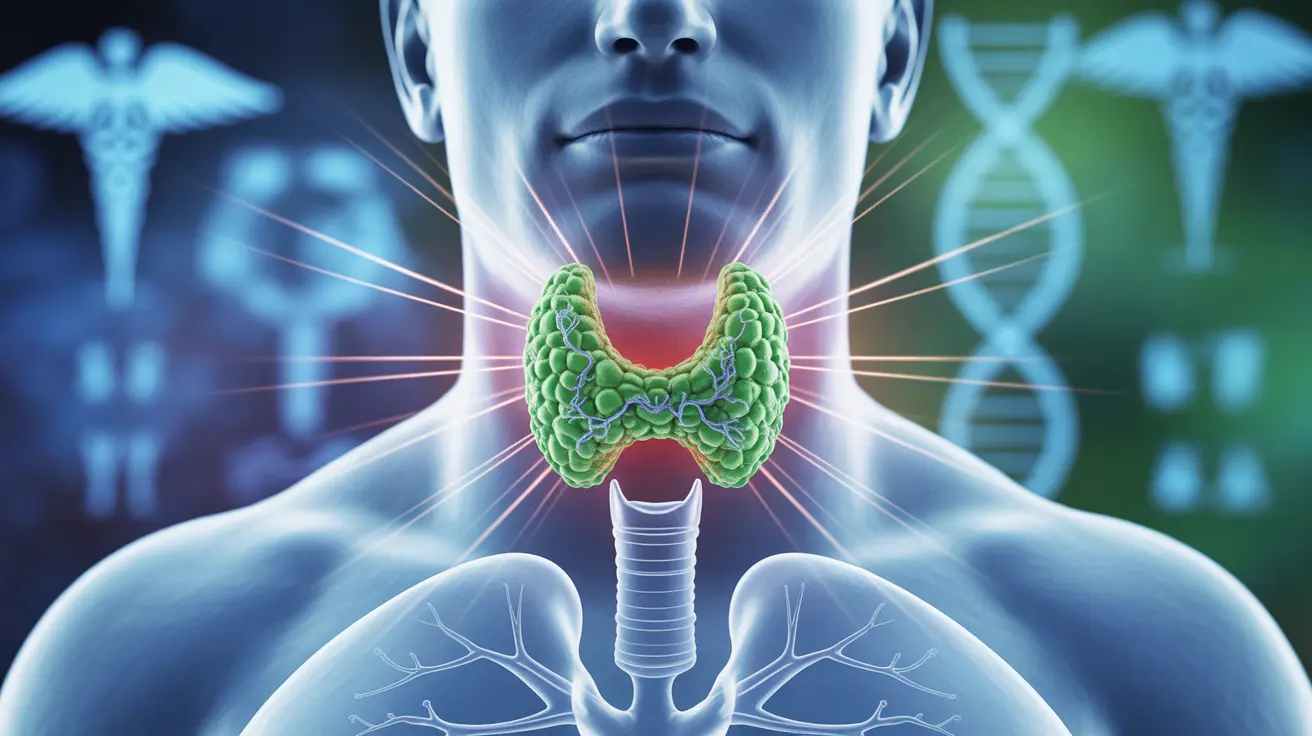Iatrogenic hyperthyroidism occurs when medical treatments or medications lead to an excess of thyroid hormones in the body. This condition typically develops as an unintended consequence of thyroid hormone replacement therapy, making it distinct from naturally occurring hyperthyroidism. Understanding this condition is crucial for both healthcare providers and patients to ensure safe and effective thyroid treatment.
While thyroid hormone replacement therapy is essential for many people with hypothyroidism, careful monitoring and proper dosing are vital to prevent iatrogenic hyperthyroidism. This article explores the causes, symptoms, diagnosis, and management of this medication-induced thyroid condition.
What Causes Iatrogenic Hyperthyroidism?
The primary cause of iatrogenic hyperthyroidism is excessive thyroid hormone replacement medication. This can occur through various scenarios:
- Incorrect dosing of thyroid medications
- Unintentional overuse of prescribed medications
- Drug interactions that affect thyroid hormone metabolism
- Changes in body weight or health status that affect medication needs
Unlike natural hyperthyroidism, which results from the thyroid gland producing too much hormone, iatrogenic hyperthyroidism is directly related to external hormone supplementation.
Recognizing the Symptoms
Iatrogenic hyperthyroidism presents symptoms similar to natural hyperthyroidism, including:
- Rapid heartbeat or palpitations
- Anxiety and nervousness
- Unexplained weight loss
- Heat intolerance and excessive sweating
- Tremors in hands and fingers
- Sleep difficulties
- Muscle weakness
- Frequent bowel movements
These symptoms typically develop gradually as thyroid hormone levels become elevated, though the onset can vary depending on the degree of over-supplementation.
Diagnosis and Assessment
Healthcare providers diagnose iatrogenic hyperthyroidism through several methods:
- Blood tests measuring thyroid hormone levels (TSH, T3, T4)
- Review of medication history and dosing
- Physical examination
- Assessment of symptoms and their progression
The key diagnostic factor is often the relationship between symptoms and thyroid medication use, along with blood test results showing elevated thyroid hormone levels.
Treatment Approaches
Managing iatrogenic hyperthyroidism typically involves several steps:
- Adjusting or temporarily stopping thyroid medication
- Regular monitoring of thyroid hormone levels
- Treating symptoms as needed
- Implementing a revised dosing schedule
- Following up with healthcare providers regularly
Recovery usually begins once medication adjustments are made, though it may take several weeks for hormone levels to normalize completely.
Prevention Strategies
Preventing iatrogenic hyperthyroidism requires careful attention to several factors:
- Regular thyroid function monitoring
- Proper medication adherence
- Communication with healthcare providers about symptoms
- Awareness of potential drug interactions
- Regular medical follow-up appointments
Frequently Asked Questions
What is iatrogenic hyperthyroidism and how does it differ from natural hyperthyroidism? Iatrogenic hyperthyroidism is an overactive thyroid condition caused by medical treatment, typically excessive thyroid hormone medication. Unlike natural hyperthyroidism, which occurs due to the thyroid gland producing too much hormone, iatrogenic hyperthyroidism is directly related to external hormone supplementation.
What are the common symptoms of iatrogenic hyperthyroidism caused by excess thyroid hormone medication? Common symptoms include rapid heartbeat, anxiety, unexplained weight loss, heat intolerance, tremors, sleep problems, muscle weakness, and frequent bowel movements. These symptoms develop due to elevated thyroid hormone levels from medication.
How is iatrogenic hyperthyroidism diagnosed and distinguished from other thyroid disorders? Diagnosis involves blood tests measuring thyroid hormone levels, reviewing medication history, physical examination, and assessing symptoms. The key distinguishing factor is the relationship between symptoms and thyroid medication use.
What treatments are available for managing iatrogenic hyperthyroidism and reversing its symptoms? Treatment primarily involves adjusting or temporarily stopping thyroid medication, monitoring hormone levels, treating symptoms, and implementing a revised dosing schedule. Regular medical follow-up ensures proper management.
How can iatrogenic hyperthyroidism be prevented during thyroid hormone therapy? Prevention involves regular thyroid function monitoring, proper medication adherence, open communication with healthcare providers, awareness of drug interactions, and attending regular follow-up appointments.




